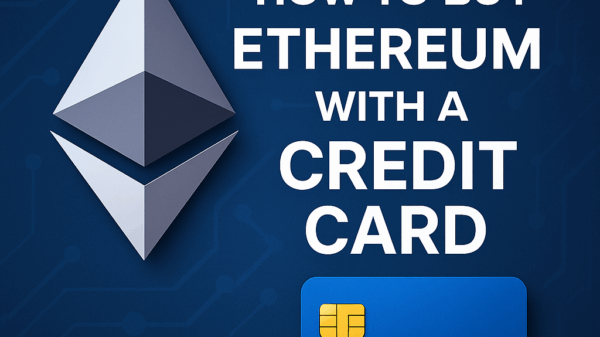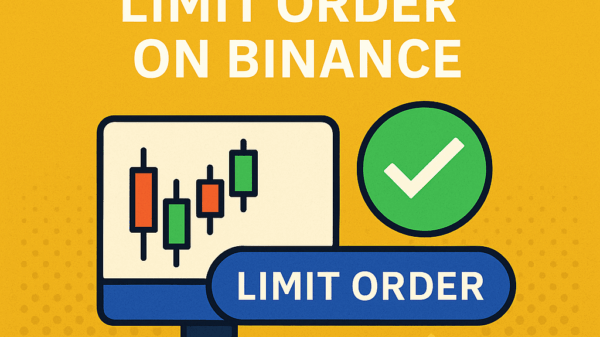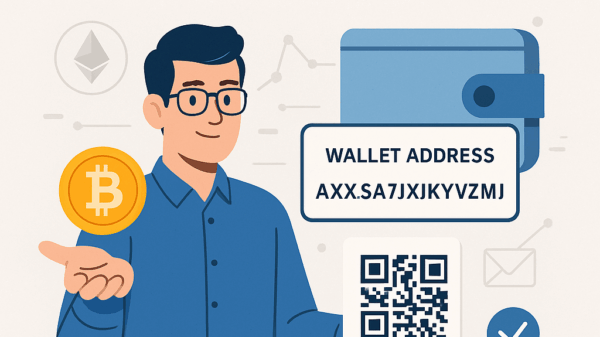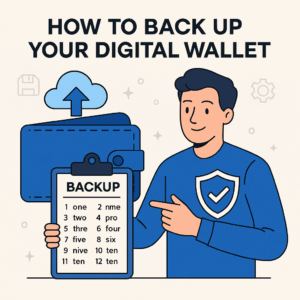How to Spot Crypto Wallet Scams
By Jason Miller – Crypto Writer 10.expert 🧠 Covering Bitcoin, altcoins, blockchain & Web3.
As a crypto writer and analyst, the decentralized nature of crypto offers immense freedom and control, but it also places a significant burden of responsibility on the individual. One of the most insidious threats in this landscape is crypto wallet scams. These aren’t just minor annoyances; they are sophisticated traps designed to relieve you of your digital assets, often with no hope of recovery.
In 2025, scammers have become incredibly adept, leveraging advanced social engineering, AI-generated content, and intricate phishing schemes to create highly convincing fake wallets, websites, and communications. The sheer volume of new users entering the crypto space also provides a fertile ground for these illicit activities. Therefore, developing a keen eye for red flags and a strong sense of skepticism is paramount for anyone holding digital assets.
Let’s dive into how to spot crypto wallet scams like a seasoned investigator, empowering you to protect your hard-earned crypto from malicious actors.
How to Spot Crypto Wallet Scams: Your Essential Guide to Staying Safe 🕵️♂️🚫
The crypto world is ripe with innovation, but also with scams. Learn to identify the red flags and protect your digital assets.
Fake Wallet Apps on App Stores 📲
- Impersonation: Scammers create malicious apps that mimic legitimate wallets (e.g., “MetaMask Pro,” “Ledger Wallet 2.0”) with similar logos and interfaces.
- Red Flags: Check the developer’s name (is it the official entity like “ConsenSys” for MetaMask?), read reviews (look for generic, repetitive, or unusually short reviews), and examine the number of downloads (legitimate apps have millions). Always go directly to the official wallet website (e.g.,
metamask.io,ledger.com) for download links.
Phishing Websites and URLs 🌐
- Typosquatting: Scammers register domain names that are slight misspellings of legitimate wallet or exchange sites (e.g.,
metammask.io,ledgerr.com). - Subtle Differences: The fake site will look identical to the real one, but the URL will be off by a letter, a dash, or a different top-level domain (e.g.,
.orginstead of.io). - Verify URLs: Always manually type the official URL or use a trusted bookmark. Check for HTTPS (the padlock symbol), but note that scammers can also obtain SSL certificates.
Unsolicited Communications (Email, SMS, DMs) 📧
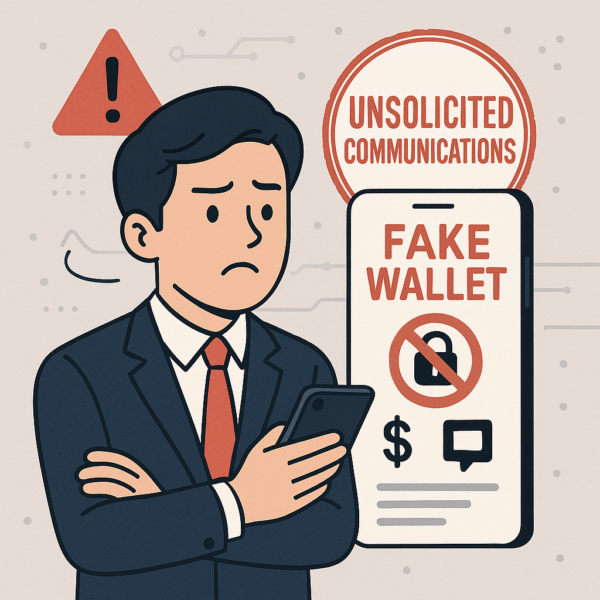
- Fake Support: You receive an email or message claiming to be from your wallet provider or an exchange, stating there’s an issue with your account, a security breach, or a mandatory update.
- Urgency & Threat: These messages often create a sense of urgency or fear, pressuring you to click a link and “verify” your wallet or “fix” a problem.
- Red Flag: Legitimate crypto companies will never ask you for your seed phrase or private keys. They rarely initiate contact about account issues via unsolicited DMs.
Requests for Your Seed Phrase or Private Keys 🤫
- THE ULTIMATE RED FLAG: No legitimate service, wallet, or person will ever ask you for your 12 or 24-word seed phrase, private keys, or secret recovery phrase.
- Anyone Who Asks is a Scammer: This is the universal rule. If you encounter this request, it is 100% a scam. Period.
“Free Crypto” or “Double Your Crypto” Giveaways 💰
- Celebrity Impersonation: Scammers impersonate celebrities (e.g., Elon Musk, Vitalik Buterin) or legitimate crypto projects, promising to send you back double the crypto if you send them a small amount first.
- Zero-Sum Game: These are always scams. There’s no such thing as free crypto in this context, and your sent funds will be gone forever.
Promises of Unrealistic Returns 📈
- Too Good to Be True: Any platform or individual promising guaranteed, high returns (e.g., “10% daily,” “200% ROI in a week”) with little to no risk is a scam, often a Ponzi scheme.
- No Free Lunch: Cryptocurrency is volatile. Legitimate investments carry risk.
Social Engineering Tactics 🎭
- “Tech Support” Scams: Scammers pose as tech support from a wallet company or blockchain project, offering to “help” you with a problem, only to trick you into revealing your seed phrase or granting remote access to your device.
- Romance/Pig Butchering: Scammers build long-term relationships online, slowly gaining trust, then “guiding” victims to invest in fake crypto platforms or download malicious wallets.
Address Poisoning Attacks 🧪
- Mimicking Addresses: Scammers send a tiny, zero-value transaction to your wallet from an address that looks almost identical (same first and last few characters) to an address you frequently use (e.g., your exchange deposit address).
- The Trap: If you’re not careful, you might accidentally copy this “spoofed” address from your transaction history for a future outgoing transaction, sending your funds to the scammer.
- Mitigation: Always verify the entire address, or use your wallet’s address book for frequent contacts.
Malware and Clipboard Hijackers 👾
- Hidden Software: Malicious software can be unknowingly installed on your computer.
- Auto-Swap Addresses: These can monitor your clipboard for crypto addresses and automatically replace a legitimate address you copied with a scammer’s address when you paste it.
- Prevention: Use reputable antivirus software, keep your operating system and browser updated, and always double-check the pasted address before confirming a transaction.
Poor Grammar, Spelling, and Design 📝
- Unprofessionalism: While some sophisticated scams are polished, many still exhibit obvious grammatical errors, misspellings, awkward phrasing, or unprofessional design.
- Red Flag: Legitimate companies invest heavily in quality control.
Lack of Transparency or Anonymous Teams 👤
- No Public Face: Be wary of wallet services or crypto projects where the team behind it is completely anonymous, especially if they are handling significant funds. While decentralization is key, transparency regarding the development team often indicates legitimacy for larger projects.
Pressure to Act Quickly or Limited Time Offers ⏱️
- Scammer Tactic: Any communication that pressures you into immediate action (“act now or lose your funds,” “limited-time bonus”) is a classic scammer’s ploy to bypass your critical thinking.
- Take Your Time: Always take your time to research and verify before committing to any crypto action.
Reviews and Community Feedback ⭐
- Investigate: Before using any new wallet, search for reviews on independent crypto forums, Reddit, and Trustpilot.
- Beware of Fake Reviews: Look out for overly positive, generic reviews or a sudden influx of similar-sounding positive reviews, which can indicate bot activity. Conversely, a flood of negative reviews mentioning lost funds or scams is a definitive red flag.
Source of Download: Only Official Channels ✅
- Website First: Always download wallet software or browser extensions directly from the official project website.
- Official App Stores: For mobile apps, stick to the Apple App Store and Google Play Store, but still, verify the developer and reviews. Avoid third-party app stores or direct APK downloads from unknown sources.
Too Many “Security Features” That Don’t Make Sense 😵💫
- Overwhelm Tactics: Some scam wallets might boast an excessive number of vague or confusing “security features” that sound too good to be true, often designed to mask their true intention (stealing your keys).
- Fundamental Security: Legitimate wallets focus on core security like strong encryption, secure private key generation, auditability (for open-source), and clear seed phrase management.
What to Do If You Spot a Scam 🚨
- Do NOT Engage: Do not click links, reply to messages, or download anything.
- Report It: Report fake apps to the respective app store, phishing websites to your browser (Google Safe Browse, etc.), and scam emails to your email provider. Report to relevant authorities like the FBI’s IC3 (Internet Crime Complaint Center) in the U.S.
- Warn Others: Share information about the scam in relevant crypto communities (safely, without spreading the malicious links).
By staying vigilant, skeptical, and always verifying the source of your crypto tools and communications, you can significantly reduce your risk of falling victim to crypto wallet scams. Your digital assets are your responsibility, and informed caution is your best defense.

